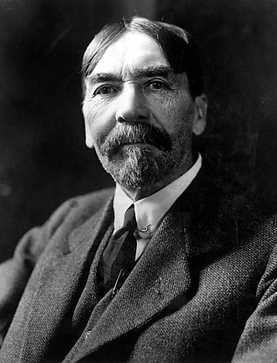Source: "The Place of Science in Modern Civilization", 1906, p. 355
Works

The Theory of the Leisure Class
Thorstein Veblen
The Theory of Business Enterprise
Thorstein VeblenFamous Thorstein Veblen Quotes
Source: The Theory of the Leisure Class (1899), p. 23
Source: The Theory of the Leisure Class (1899), p. 5
Source: The Theory of Business Enterprise, 1904, p. 370
Source: The Theory of the Leisure Class (1899), p. 128
Source: The Theory of the Leisure Class (1899), p. 148
Thorstein Veblen Quotes about life
Source: The Theory of Business Enterprise, 1904, p. 41-42. as cited in: Geoffrey Hodgson (2004). The Evolution of Institutional Economics. p. 202
Source: The Theory of the Leisure Class (1899), p. 122
Source: The Theory of Business Enterprise, 1904, p. 306
Source: The Theory of the Leisure Class (1899), p. 112
Source: The Theory of the Leisure Class (1899), p. 84
Source: The Theory of the Leisure Class (1899), p. 99
Thorstein Veblen Quotes about communication
Source: The Theory of the Leisure Class (1899), p. 110
Source: The Theory of the Leisure Class (1899), p. 32
Source: The Theory of the Leisure Class (1899), p. 19
Source: Absentee Ownership (1923), p. 191
Source: The Theory of the Leisure Class (1899), p. 65-66
Source: The Theory of the Leisure Class (1899), p. 111
Thorstein Veblen Quotes
Source: The Theory of the Leisure Class (1899), p. 83
Source: The Theory of the Leisure Class (1899), p. 125
Source: The Theory of the Leisure Class (1899), p. 92
“Conspicuous consumption of valuable goods is a means of reputability to the gentleman of leisure.”
Source: The Theory of the Leisure Class (1899), p. 57,
“[H]ere and now, as always and everywhere, invention is the mother of necessity.”
Veblen (1914) "The Instinct of Workmanship and the State of the Industrial Arts". p. 314
Source: The Instinct of Workmanship and the State of the Industrial Arts, 1914, p. 349
Source: The Instinct of Workmanship and the State of the Industrial Arts, 1914, p. 67
Source: The Theory of the Leisure Class (1899), p. 117
Veblen (1908) The Evolution of the Scientific Point of View, University of California Chronicle
Source: The Theory of the Leisure Class (1899), p. 102
Veblen (1917) An Inquiry Into the Nature of Peace, and the Terms of Its Perpetuation, p. 168
Source: The Theory of the Leisure Class (1899), p. 126
Source: "Why is economics not an evolutionary science?", 1898, pp. 375-378; As cited in: Geoffrey M. Hodgson, "Veblen and darwinism." International review of sociology 14.3 (2004): 343-361
“All ritual has a notable tendency to reduce itself to a rehearsal of formulas.”
Source: The Theory of the Leisure Class (1899), p. 122
“The possession of wealth confers honor; it is an invidious distinction.”
Source: The Theory of the Leisure Class (1899), p. 26
Source: The Theory of the Leisure Class (1899), p. 106
Source: The Theory of Business Enterprise, 1904, p. 369
Source: The Theory of the Leisure Class (1899), p. 51
Source: The Theory of the Leisure Class (1899), p. 23
“The chief use of servants is the evidence they afford of the master's ability to pay.”
Source: The Theory of the Leisure Class (1899), p. 62
Veblen (1918) The Higher Learning in America. p. 155
Source: The Theory of the Leisure Class (1899), p. 103
